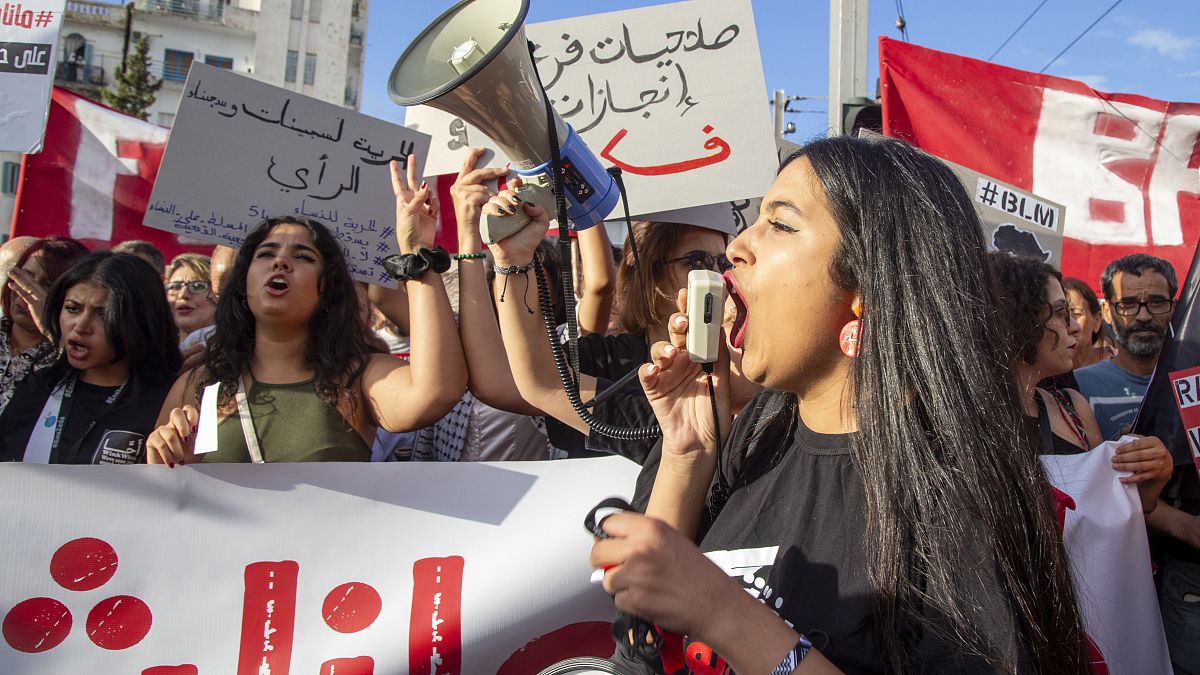Protests erupted over the weekend in Tunisia as the presidential campaign season kicked off against a backdrop of dissatisfaction with the country’s rulers and the arrest of key opposition figures. Ennahda, the largest opposition party, reported that many of its senior members had been arrested in a sweeping crackdown by the government. This has fueled concerns about the state of democracy and human rights in the North African country.
Demonstrators gathered in the capital city Tunis to voice their grievances and demand change. Samia Abbou, a former assembly member, criticized President Kais Saied for his failure to effectively lead the country. Saied, who is seeking reelection, has faced backlash for consolidating power, ruling by decree, and cracking down on political opponents. His anti-corruption promises during his first term have failed to materialize, leading to widespread disillusionment among Tunisians.
The arrest of journalists, activists, and members of Ennahda has raised concerns about the government’s commitment to democratic principles. Civic space in Tunisia is shrinking, prompting calls from democracy advocates for the European Union to put pressure on the government. The EU has a vested interest in supporting Tunisia’s stability and preserving the migration agreement between the two entities. However, recent developments have cast doubts on the fairness of the upcoming elections and the future of EU-Tunisia relations.
Tunisia’s economic challenges add another layer of complexity to the political situation. High unemployment rates, particularly among young people, and stagnant economic growth are pressing issues that the next president will have to address. The country’s stability and prosperity depend on effective leadership, respect for democratic norms, and adherence to the rule of law. The outcome of the October election will have far-reaching implications for Tunisia’s future trajectory and its relationship with international partners.
Despite promises of reform and anti-corruption measures, President Kais Saied’s tenure has been marked by a crackdown on dissent and political opposition. The arrests of Ennahda members and the erosion of civil liberties have sparked protests and raised concerns about the state of democracy in Tunisia. The upcoming presidential election will be a litmus test for the country’s commitment to democratic values and the rule of law. International observers, including the EU, are closely monitoring the situation and urging the Tunisian government to uphold human rights and ensure free and fair elections.
The EU-Tunisia Migration Agreement, a controversial deal designed to curb illegal migration, underscores the delicate balance between security concerns and human rights considerations. Tunisia’s economic challenges, including high unemployment rates and stagnant growth, further complicate the political landscape. The next president will face a daunting task of addressing these issues, fostering economic development, and restoring trust in the government. Tunisia’s stability and prosperity hinge on the ability of its leaders to navigate these complex challenges and uphold democratic principles.











